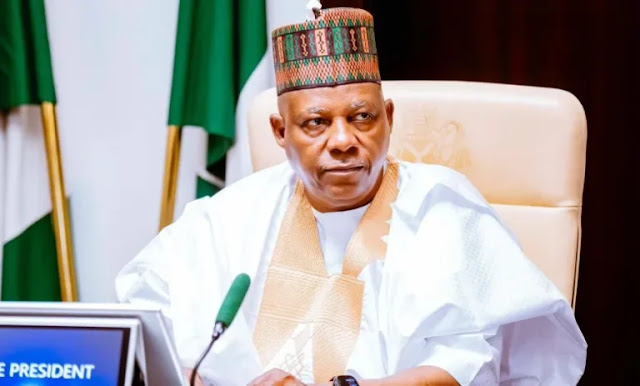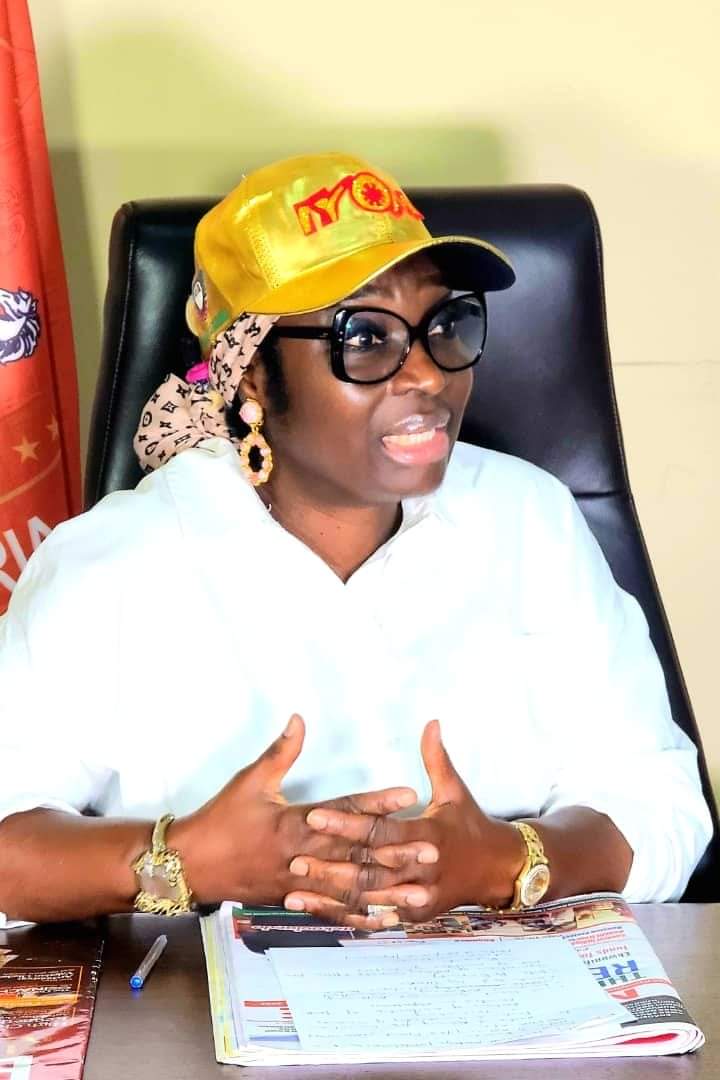In a compelling address at the 30th Nigerian Economic Summit (NES) held in Abuja, Vice President Kashim Shettima passionately defended the economic reforms introduced by President Bola Ahmed Tinubu’s administration, describing them as a “painful but necessary surgery” to rescue Nigeria from the brink of economic collapse. The summit, themed “Collaborating for Global Competitiveness and Prosperity,” provided a platform for Shettima to articulate the government’s vision, address public concerns, and rally support for policies aimed at stabilizing and revitalizing Nigeria’s economy. His remarks underscored the administration’s commitment to addressing long-standing structural challenges, even as Nigerians grapple with the immediate hardships resulting from these reforms.
The Context of Nigeria’s Economic Challenges
Nigeria, Africa’s most populous nation and largest economy, has faced persistent economic difficulties over the past few decades. Despite its vast natural resources, including oil and gas, the country has struggled with systemic issues such as corruption, inefficiency, and over-reliance on crude oil exports. For years, Nigeria’s economy was propped up by subsidies, particularly on petroleum products, which drained the national treasury while fostering inefficiencies and smuggling. Additionally, the naira, Nigeria’s currency, has faced significant pressure, with its value plummeting against major global currencies due to mismanagement, inconsistent monetary policies, and external shocks like fluctuating oil prices.
When President Tinubu assumed office in May 2023, he inherited an economy in dire straits. Foreign exchange reserves were dangerously low, inflation was soaring, and the cost of living was becoming unbearable for millions of Nigerians. The administration’s immediate response was a bold and controversial set of reforms, including the removal of the fuel subsidy and the liberalization of the foreign exchange market. These measures, while aimed at addressing structural distortions, triggered significant economic disruptions, including skyrocketing fuel prices, increased transportation costs, and a sharp rise in the cost of goods and services.
Against this backdrop, Vice President Shettima’s speech at the NES was a critical opportunity to explain the rationale behind these reforms, manage public expectations, and outline the government’s long-term vision for economic recovery. His address was not only a defense of Tinubu’s policies but also a call for unity and collaboration among stakeholders to navigate Nigeria through this turbulent period.
The “Painful but Necessary Surgery”
In his keynote address, Shettima likened the current economic reforms to a surgical procedure, emphasizing that while the process is painful, it is essential for Nigeria’s long-term survival and prosperity. “No one embarks on surgery for the sake of it,” he said. “It is undertaken when the patient’s life is at stake. Nigeria was on the precipice of economic collapse, and these reforms are the necessary intervention to restore health to our economy.”
The metaphor of surgery was particularly poignant, as it captured both the urgency of the reforms and the discomfort they have caused. The removal of the fuel subsidy, announced shortly after Tinubu’s inauguration, was one of the most contentious decisions. For decades, the subsidy kept fuel prices artificially low, providing relief to consumers but costing the government billions of dollars annually. The funds saved from the subsidy were meant to be redirected to critical sectors like infrastructure, healthcare, and education, but the immediate effect was a sharp increase in fuel prices, which in turn drove up the cost of transportation, food, and other essentials.
Shettima acknowledged the hardships faced by Nigerians, particularly the poor and vulnerable, who have borne the brunt of these changes. “We are not insensitive to the challenges our people are facing,” he said. “But we must act decisively to prevent a deeper crisis. The alternative would have been catastrophic—a complete economic meltdown that would have taken decades to recover from.”
The liberalization of the foreign exchange market was another key reform that Shettima defended. By allowing the naira to float, the government aimed to eliminate distortions in the currency market, attract foreign investment, and stabilize the economy. However, the policy led to a significant depreciation of the naira, further exacerbating inflation and increasing the cost of imported goods. Shettima argued that these measures, though painful in the short term, were critical to building a more resilient and competitive economy. “We cannot continue to rely on artificial mechanisms that drain our resources and stifle growth,” he said. “The path to prosperity requires tough choices, and we are making them.”
A Vision for Global Competitiveness
The theme of the 30th NES, “Collaborating for Global Competitiveness and Prosperity,” was a fitting backdrop for Shettima’s remarks. He emphasized that Nigeria cannot afford to remain isolated from the global economy. In an increasingly interconnected world, countries must compete for investment, innovation, and market access. Nigeria, with its youthful population and abundant resources, has the potential to become a global economic powerhouse, but only if it addresses its structural weaknesses and embraces bold reforms.
Shettima highlighted several initiatives aimed at positioning Nigeria for global competitiveness. These include investments in infrastructure, such as roads, railways, and power plants, as well as efforts to diversify the economy away from oil. The administration has prioritized agriculture, technology, and renewable energy as key drivers of growth. For example, the government has launched programs to boost agricultural productivity, including providing farmers with improved seeds, fertilizers, and access to credit. These efforts aim to reduce Nigeria’s dependence on food imports and create jobs in rural communities.
The Vice President also spoke about the importance of digital transformation. Nigeria’s tech sector has seen significant growth in recent years, with startups like Flutterwave, Paystack, and Andela gaining global recognition. Shettima noted that the government is committed to creating an enabling environment for tech entrepreneurs through policies that promote innovation, protect intellectual property, and expand access to broadband internet. “The future of our economy lies in the hands of our young innovators,” he said. “We must empower them to compete on the global stage.”
Addressing Public Concerns and Building Trust
One of the challenges facing the Tinubu administration is managing public discontent over the economic reforms. Protests and strikes have erupted across the country, with labor unions and civil society groups demanding relief for ordinary Nigerians. The rising cost of living has eroded purchasing power, and many households are struggling to afford basic necessities. Critics argue that the government has not done enough to cushion the impact of the reforms, particularly for the most vulnerable segments of society.
Shettima acknowledged these concerns and outlined measures the government is taking to mitigate the hardships. He highlighted social intervention programs, such as cash transfers, food distribution, and subsidies for small businesses, aimed at supporting low-income households. The government has also introduced measures to stabilize the naira and curb inflation, including interventions by the Central Bank of Nigeria (CBN) to improve liquidity in the foreign exchange market.
However, Shettima stressed that these interventions are not quick fixes. “Economic recovery is a marathon, not a sprint,” he said. “We are laying the foundation for a stronger, more inclusive economy, but it will take time for the benefits to be fully realized.” He urged Nigerians to remain patient and supportive, emphasizing that the reforms are in the national interest.
Building public trust is critical to the success of these reforms. Shettima called for greater collaboration between the government, private sector, and civil society to ensure transparency and accountability in the implementation of policies. He also emphasized the importance of communication, noting that the government must do a better job of explaining its actions and engaging with citizens. “We are committed to listening to the concerns of our people and working together to find solutions,” he said.
The Role of the Nigerian Economic Summit
The NES, organized by the Nigerian Economic Summit Group (NESG) in collaboration with the federal government, has become a cornerstone of Nigeria’s economic policy discourse. For three decades, the summit has brought together policymakers, business leaders, academics, and civil society representatives to discuss critical issues and chart a path for sustainable development. This year’s summit was particularly significant, given the ongoing economic challenges and the need for consensus on the way forward.
Shettima commended the NESG for its role in fostering dialogue and driving economic reforms. He noted that the summit’s theme of collaboration reflects the government’s belief that no single entity can solve Nigeria’s problems alone. “We need the private sector to invest, innovate, and create jobs. We need civil society to hold us accountable. And we need the international community to partner with us in building a prosperous future,” he said.
The summit featured panel discussions, workshops, and presentations on topics ranging from energy transition to financial inclusion. Participants explored ways to strengthen Nigeria’s economic institutions, improve governance, and attract foreign direct investment. The event also provided an opportunity for the government to showcase its achievements, such as improvements in ease of doing business and progress in renewable energy projects.
The Broader Implications of the Reforms
The reforms introduced by the Tinubu administration have far-reaching implications for Nigeria’s future. On one hand, they represent a break from the status quo, signaling a willingness to tackle entrenched problems head-on. The removal of the fuel subsidy, for example, has freed up significant resources that can be invested in critical infrastructure and social programs. Similarly, the liberalization of the foreign exchange market has made Nigeria more attractive to foreign investors, who were previously deterred by currency controls and bureaucratic hurdles.
However, the reforms also carry risks. The immediate impact on ordinary Nigerians has been severe, with many struggling to cope with rising costs. If the government fails to deliver tangible results in the short to medium term, public support for the reforms could wane, potentially leading to social unrest. Moreover, the success of the reforms depends on factors beyond the government’s control, such as global oil prices, geopolitical stability, and the pace of economic recovery in key trading partners.
Shettima’s speech at the NES was an attempt to bridge this gap between short-term pain and long-term gain. By framing the reforms as a necessary surgery, he sought to convey the urgency of the situation while reassuring Nigerians that the government is committed to their welfare. His emphasis on collaboration also reflects an understanding that the reforms cannot succeed without buy-in from all segments of society.
The Path Forward
As Nigeria navigates this critical juncture, the government faces the dual challenge of implementing reforms while maintaining social cohesion. The success of Tinubu’s policies will depend on several factors, including effective communication, robust implementation, and the ability to deliver quick wins that demonstrate progress. For example, investments in agriculture and infrastructure must translate into visible improvements in food security and transportation networks. Similarly, efforts to stabilize the naira must yield results that ease the burden on consumers.
The private sector also has a critical role to play. By investing in key industries and creating jobs, businesses can help drive economic growth and reduce poverty. The government, for its part, must create a conducive environment for investment by addressing issues like corruption, insecurity, and bureaucratic red tape.
International partners can also support Nigeria’s economic recovery. Multilateral institutions like the World Bank and the International Monetary Fund (IMF) have already provided financial assistance and technical support for the reforms. However, Nigeria must balance the need for external support with the imperative to maintain economic sovereignty and protect national interests.
Conclusion
Vice President Kashim Shettima’s address at the 30th Nigerian Economic Summit was a clarion call for resilience, collaboration, and sacrifice in the face of Nigeria’s economic challenges. By defending President Tinubu’s reforms as a “painful but necessary surgery,” he acknowledged the difficulties faced by Nigerians while emphasizing the long-term benefits of the policies. The reforms, though controversial, represent a bold attempt to address deep-seated structural issues and position Nigeria for global competitiveness and prosperity.
As the country moves forward, the government must prioritize transparency, accountability, and effective communication to maintain public trust. The private sector, civil society, and international partners must also play their part in supporting Nigeria’s economic transformation. While the road ahead is fraught with challenges, Shettima’s message was one of hope and determination—a reminder that, with collective effort, Nigeria can overcome its current difficulties and emerge stronger, more prosperous, and better positioned to compete in the global economy.








